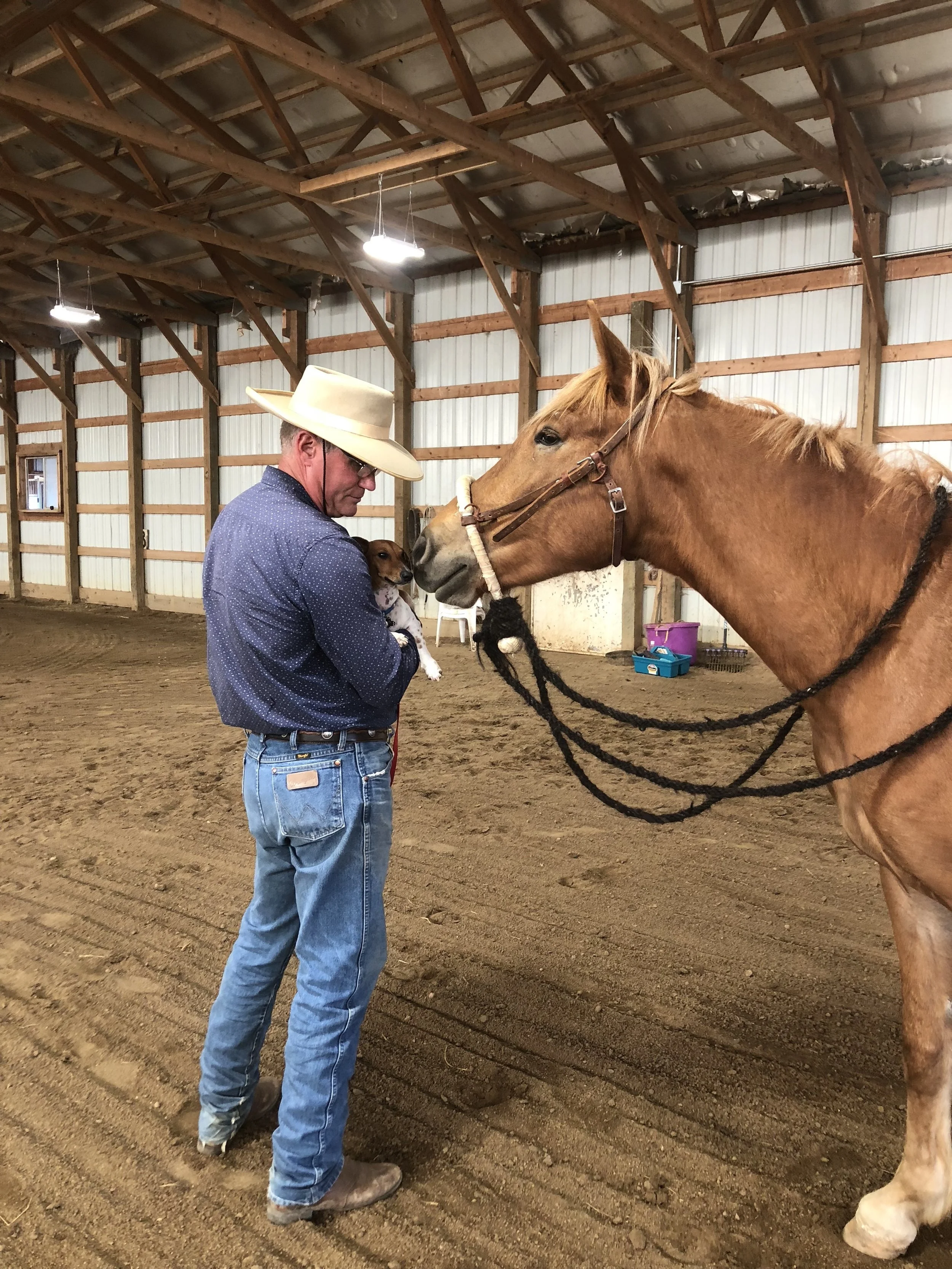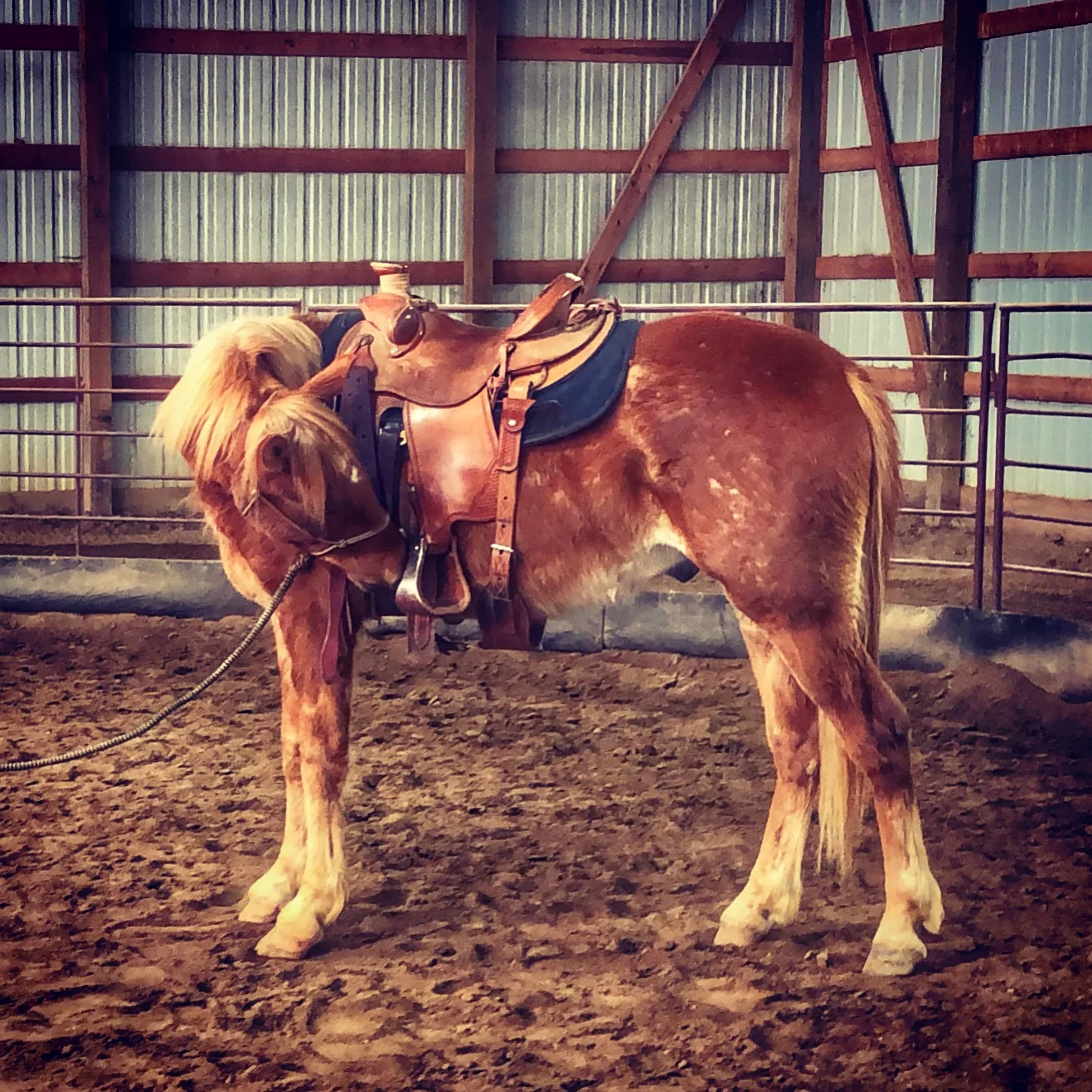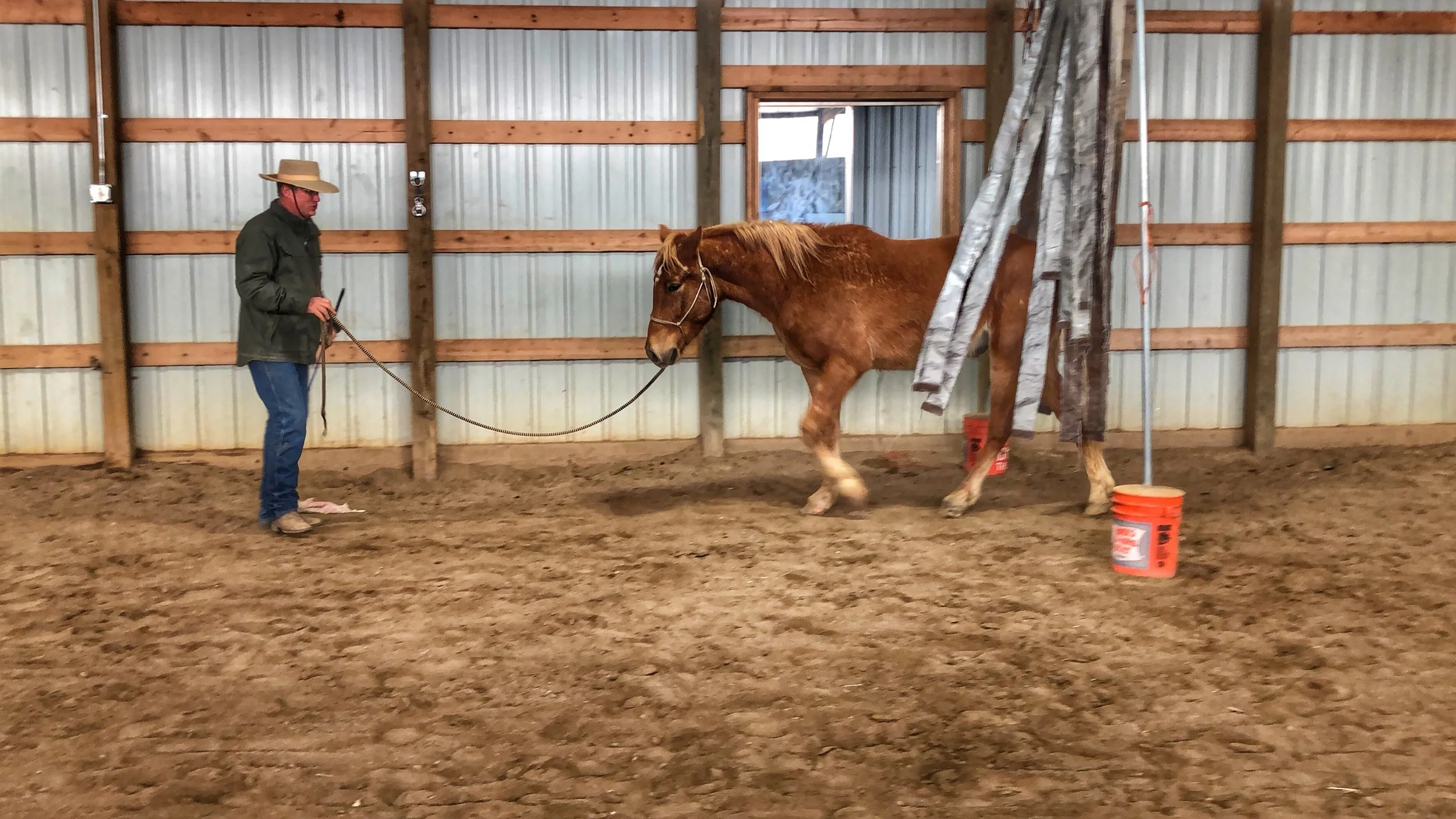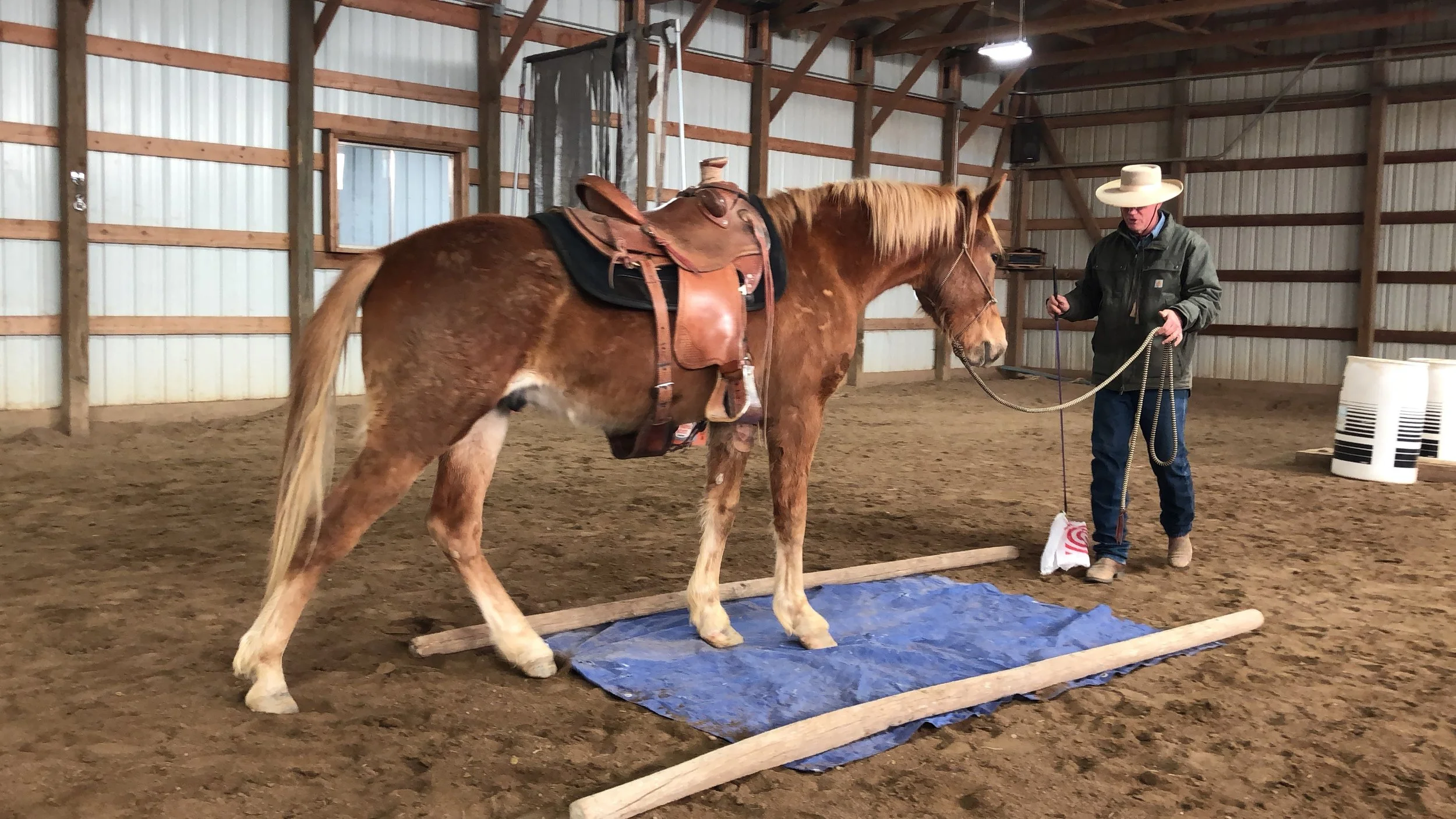90 Days
As life often has a way of going, mine has been considerably busy these past few weeks and I have neglected to write. It’s tricky when this happens because then I am faced with the task of picking out highlights to share and inevitably I forget key moments or ideas. That said I will do my best to catch up and hope not to fall so behind again. A lot has changed in my life this past week, but that is a story for another time. I actually wrote this post almost two weeks ago, but I don't want to muddy it with the new stuff. There will be plenty of time for that!
21 May 2018
We are well into month three and things are moving along, but we have intentionally slowed down a little so as not to push Ollie to hard. He is really young and thus still growing and my number one priority with him is to always to keep him the priority--my retired Belgian cross Rory was worked really hard when he was young. He was an Amish plow horse and now, at 11, he has developed joint issues and has old injuries that make him unrideable. I do not want the same for Oliver and Sean and I have been in constant communication about how to safely and respectfully train him.
Since I last wrote, I have done a few rides on my own with Oliver. This was intimidating to me at first, but by ride number three I felt much more confident. We are working now on getting Oliver to respond to cues under saddle and most of my work with him has to do with taking direction and moving around (both in the round pen and arena) at the walk. Sean has worked with him a the walk, trot and once at the canter and Oliver responded well, but even Sean has kept his last rides short and kept work at the walk.
Oliver is moving out better and better each ride. He still has his moments of resistance, but it seems mostly when he is trying to figure out what is asked of him. Once he gets it, he relaxes and moves forward. He is comfortable with turns, has a great “whoa” and is responsive to cues to back up. We will likely stick with these skills for now, though Sean may step things up in the coming month or so when he is working with Ollie on his own. I am heading up to our new home in Bend, Oregon and will dedicate the next month getting things ready so that the horses can join me in a few weeks.
Earlier today, I read a Facebook post written by a woman who is curious about possibly adopting a mustang for the first time. She asked great questions and got some good advice from members of the group about how to get started and what to expect. Reading her post and the replies got me thinking about my own reflections on this process as a first time mustang owner and, true to my teacher form, I thought it would be appropriate to step back and consider some takeaways that I have from these first 90 days of the Oliver adventure. So, in now particular order, and with humility because I am only an expert on my experience, I want to get down in words (and maybe a few pictures) those thoughts. If anything, it will be interesting to look back on them a few months from now to see if they have changed.
Find a community. This one I don’t think will change. When I first learned about mustangs and started to consider adopting one of my own I did so, really, because I already had a network and the luck of landing with my retired horse at a barn with an incredible mustang trainer. Those of you who have followed Oliver’s progress know that Sean Davies has been the key to all of this for me--I might have done it otherwise, but I doubt it would have gone very well without his guidance and support. In my time in Colorado, and more specifically at Sean and Dani’s ranch in Erie, I have seen firsthand what can happen when mustangs end up in the hands of people who lack the knowledge and experience to gentle and train them. They arrive in Sean’s care often--many of whom have been deemed dangerous or unrideable by folks who have approached working with a mustang as one might a domestic horse. Undoing the damage done to a mustang who has had a rough start can take months and even then many of them who have been mishandled retain their fearfulness. It is painful to see how many problems can be caused in such a short time and these animals deserve the best right from the start. If you don’t have the knowledge yourself, find someone who does. If you can’t, then a mustang is not for you.
Listen to your horse. I have learned a great deal from Oliver and it has really been a gift working with him. Throughout this process, though, Sean and other members in my horse community have reminded me to pay close attention to how Oliver responds to new things and to be sure to keep his needs the focus. While this is a learning process and great opportunity for me, it really isn’t about me at all in the end. What matters is that Oliver learns how to be a person’s partner without losing trust, but while also maintaining respect. He tells us when he is ready for new things and when he needs time to adjust. We do our best to listen.
Listen to yourself. That almost cliche idea that horses are a mirror rings even truer when you are working with a wild horse. I say this more from my experience watching some of the other (arguably more “wild”) horses at the barn. Establishing a strong, respectful confidence has been key for me (and is still a work in process). I need to pay close attention to this as I work with Oliver because the whole “fake it ‘til you make it” does NOT apply here. He knows the minute I question myself, so it is better for me to find ways to gain confidence by asking questions and seeking support, than it would be for me to just go forward with things on my own.
Try, when at all possible, to do it right the first time. This goes back to my observations of mustangs who have had negative experiences with trainers but also relates to my work with Ollie. The beauty of adopting a mustang is that, in many ways, he is a blank slate when it comes to people. Though many people have luck adopting mustangs who have had TIP trainers or who have gone through the prison training programs, it is really important to do so (I believe) knowing a bit about how those trainers’ processes. In watching Oliver and also Boone, the BLM mustang who arrived at the barn a week after Oliver, I have seen how mindful decisions are made as trust is built.
Be patient. This should probably be starred--or at least underlined. Oliver is a unique mustang in that he was born at a sanctuary and really came to us very trusting of people. That said, it has been really important to be patient with his progress and to keep in mind, always, what pace works best for him. We have had weeks where we have made huge strides and then those where we have simply maintained. Honestly, I have had little expectations about when we are “supposed” to reach different milestones and I think this has served us both well.
Love the process. Though I am generally more adept with words than I am with horses, I am not sure if I can, as of yet, find the words to express how incredible this process has been for me. Each step forward (and even those times we took a few steps back) has been an incredible learning experience. I have learned more about myself in working with Oliver than I have in a long, long time. Appreciating the incredible nature of this opportunity--I mean seriously, when I think of how this all came together I am still in awe: I met Sean, I heard an NPR story and I read a book. Three months later, I am still earning the right to my cowboy boots, but I have adopted what might be one of the sweetest mustangs in the west (though I am admittedly a little biased). While the end goal here may be a long term partnership with an incredible horse, the trail that leads there has been the most rewarding.

















